Conference Programme
Venue: Hotel Tirana International, Room "Abret"
Venue: Hotel Tirana Iternational, Room "Classic"
Agenda only available to ICDPPC Members and Observers. Please Login to view.
Agenda only available to ICDPPC Members and Observers. Please Login to view.
Welcome speeches
Commissioner Besnik Dervishi, Information and Data Protection Commissioner (IDP), the national supervisory authority of the Republic of Albania and ICDPPC Host Authority 2019
Welcome - ICDPPC Chair Elizabeth Denham, UK Information Commissioner
- Update from the Closed Session
- Introduction to the Conference theme and lines of exploration
- Tribute to Giovanni Buttarelli (1957 – 2019), past ICDPPC Host, and former European Data Protection Supervisor
Edi Rama
Prime Minister of the Republic of Albania
The panel will explore what convergence means in practice and debate the value of both further developing common standards and work on making laws interoperable. This will also present the chance to explore the obstacles to protection of fundamental data protection and privacy rights, and how global data protection approaches can address the growing importance of China in the digital economy.
Moderator
Graham Greenleaf
Professor of Law & Information Systems, University of New South Wales, Faculty of Law
Introduction of the panel by the moderator
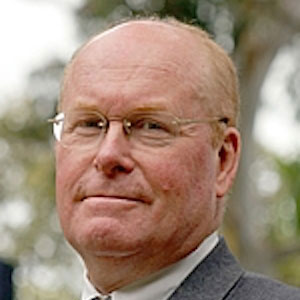
Graham Greenleaf
Graham Greenleaf AM is Professor of Law & Information Systems at UNSW Australia where he has researched and taught the relationships between information technology and law since 1983. He has degrees in Arts and Law, and is a Fellow of the Australian Computer Society. In 2010, he was made a member of the Order of Australia (AM) for his contributions to advancing free access to legal information, and to the protection of privacy, and in 2017, was elected as a Member of the Australian Academy of Laws.
Graham has been involved in privacy issues since the mid-1970s. Asian Data Privacy Laws: Trade and Human Rights Perspectives (OUP, 2014; paperback 2017) is a study of privacy and data protection in all 28 countries in Asia. He is Asia-Pacific Editor for Privacy Laws & Business International Report, which in 2019, published his 6th Global Survey of Data Privacy Laws and DPAs, covering 134 countries. He is co-editor of the new Oxford Data Protection & Privacy Law Series (OUP, 2019).
He is the founder of the Asian Privacy Scholars Network, a board member of the Australian Privacy Foundation, and the editor of WorldLII’s International Privacy Law Library. He has completed six consultancy projects for the European Commission, advising on the level of privacy protection provided in various Asia-Pacific countries. He has over 100 articles about data privacy on the free access SSRN service. Details of his other research on public rights in copyright, ‘AI and law’, and free Internet access to legal information, are on his website at http://www2.austlii.edu.au/~graham/.
Panelists
Chawki Gaddès
Head of the Tunisian DPA (INDPDP), and President of the Francophone Association of Personal Data Protection Authorities (AFAPDP)
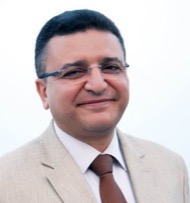
Chawki Gaddès
Publicist Lawyer, University Lecturer at the University of Carthage since 1988, specializing in information technology law, data protection and the right of access to information. Secretary-General of the Tunisian Association of Constitutional Law from 1991 to 2017, has ensured the follow-up of the drafting of the constitution of 2014. Member of the Investigation body on the Facts of the Revolution, Coordinator of the International Electoral Expert Missions, Member of the Cabinet of the President of the Higher Independent Electoral Body in 2011. Editor of the draft electoral law for local authorities and member of the drafting team of the decentralization code. President of the national authority for the protection of personal data (INPDP) since May 2015 and renewed for a second term in May 2018. He worked for the Tunisian state to adopt the Council of Europe Convention 108. Tunisia has been a member since November 2017. He pushed for Tunisia to sign the 108+ Convention on 24 of May 2019. Drafter of the new law on the protection of personal data integrating the standards of the RGPDP. The project was adopted by the Council of Ministers on 8 March 2018, currently pending before the parliamentary commission. President of the French Association of Personal Data Protectors (AFAPDP) since February 2019.
Bruno Gencarelli
Head of International Data Flows and Protection, European Commission
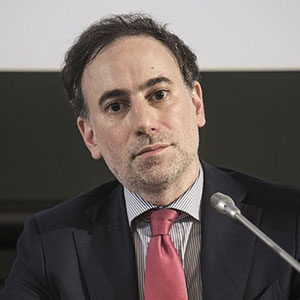
Bruno Gencarelli
Mr Gencarelli heads the International data flows and protection Unit at the European Commission. He led the Commission’s work in the area of data protection in the decisive phases of the negotiations on the GDPR and the EU-US data transfers arrangements. In that capacity, he headed the Commission’s delegation in the interinstitutional negotiations with the European Parliament and the Council that resulted in the adoption of the EU data protection reform (“General Data Protection Regulation” and “Law Enforcement Directive”). He was also one of the lead negotiators of the EU-US Privacy Shield and “Umbrella Agreement”. He represented the EU in the negotiations on the modernisation of Convention 108. He recently negotiated the mutual adequacy arrangement with Japan. Mr Gencarelli previously served as a member of the European Commission’s Legal Service and as an assistant (référendaire) to a judge at the European Court of Justice after having practiced law in the private sector. He holds degrees in law and political science, and teaches EU Competition Law at Sciences Po Paris. He is the author of numerous publications on EU law.
Dr. Felipe Rotondo
Member of the Executive Council of the URCDP
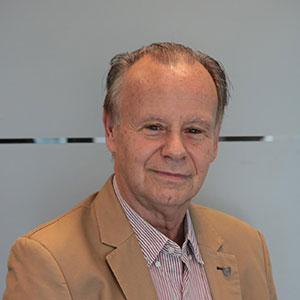
Dr. Felipe Rotondo
Member of the Executive Council of the Regulatory and Control Unit for Personal Data of Uruguay (2009-present). He holds the Presidency of the Unit annually (alternate with other member of the Council).
Doctor of Law and Social Sciences and Doctor of Diplomacy, from the University of the Oriental Republic of Uruguay. Diploma in Public Administration Management from the National Institute of Public
Administration, Spain. Professor of Administrative Law.Director of the Institute of Administrative Law at the Law School of the University of the Republic, in the periods 2013-2015 and 2015-2017.
Professor in Masters of Law Courses at the University of Montevideo (Fundamentals of Administrative Law; Administrative Organization and State Responsibility)
Member of the Ibero-American Forum of Administrative Law.
He was Secretary General of the Central Directive Council of the National Administration of Public Education; Manager of the Professionals Retirement and Pension Service; member of the Consultative Council of Private Tertiary Education, of the Council of the Law School of the University of the Republic and of the General Assembly of the Cloister of the aforementioned University.
Author of numerous publications and speaker in congresses, seminars, etc. especially on issues of Public Law and Data Protection
Stephen Kai-yi Wong
Privacy Commissioner for Personal Data, Hong Kong, China
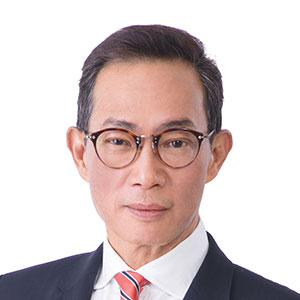
Stephen Kai-yi Wong
Mr Stephen Wong joined the Attorney General’s Chambers of the Hong Kong Government as a Crown Counsel in 1986. In 1991, he was seconded to the UN Human Rights Committee based in Geneva. In 1992, he became the Assistant Director of Public Prosecutions. From 1996 to 2014, he assumed the offices of Deputy Solicitor-General; Founding Director of Berlin Economic and Trade Office; and Secretary-General of the Hong Kong Law Reform Commission, responsible for human rights (including reporting to UN human rights treaty monitoring bodies); cross-boundary legal affairs; Constitutional law issues; legal policies; economic and trade affairs (Central and Eastern Europe) and law reform. His fields of legal practice also include commercial law, arbitration law, intellectual property and criminal law. He is also active in the community work, having been appointed as an adjunct professor of the School of Law, City University of Hong Kong; advocacy examiner of the Faculty of Law, University of Hong Kong; a director of the City Contemporary Dance Company and a scout leader. He graduated from the University of Hong Kong, also holding an LLM from the London School of Economics. He also pursued management courses at Harvard and Wharton, USA.
Mr Wong was appointed as the Privacy Commissioner for Personal Data of Hong Kong in August 2015, having been in private practice as a barrister-at-law, specialising in public law. On top of overseeing a fair enforcement of data protection law, he has since been allocating additional resources in education and publicity, and engaging the related industry with a view to strengthening the culture of respecting others’ personal data privacy by complementing legal compliance with data ethics, as well as maintaining a proper balance between free flow of information and data protection without unduly compromising ICT and economic development.
Jan Kleijssen
Director of Information Society and Action Against Crime (Council of Europe)

Jan Kleijssen
Jan Kleijssen was born in 1958 in Almelo, The Netherlands. He studied International Law at Utrecht State University (LLM in 1981) and International Affairs at the Norman Paterson School of International Affairs, Carleton University, Ottawa (MA 1982).
Jan joined the Council of Europe in 1983 as a Lawyer with the European Commission of Human Rights. He was Secretary to the Parliamentary Assembly’s Political Affairs Committee from 1990 to 1999. Jan then served as Director of the Secretary General's Private Office and afterwards as Director and Special Advisor to the President of the Parliamentary Assembly.
Jan is currently the Director of Information Society - Action against Crime, Directorate General Human Rights and Rule of Law, of the Council of Europe.
His Directorate carries out standard-setting, monitoring and co-operation activities on a wide variety of issues, including:
Freedom of expression
- Data protection
- Internet governance
- Cybercrime
- Terrorism
- Criminal law
- Fighting corruption and money laundering
Jan was appointed Chair of the Council of Europe’s Disciplinary Board in December 2015, and Council of Europe Internet Governance Coordinator in 2018.
In May 2018, the Secretary General appointed Jan to lead the work on the proposals for the future of the Council of Europe following the Elsinore Ministerial Session. These served as a basis for discussion at the Ministerial Session in Helsinki in May 2019, celebrating the 70th Anniversary of the Council of Europe.
Onalytica, a marketing software platform, in July 2019 included Jan among the Top 100 influencers on the regulation of new technologies.
Besides his mother tongue Dutch, Jan is fully fluent in English, French, German and Italian.
He takes a great interest in history and cinema and is also a keen marathon runner.
Publications:
- “Conseil de l’Europe et intelligence artificielle. Les droits de l’homme, l’Etat de droit et la démocratie face aux défis du développement et de l’utilisation de l’intelligence artificielle”, L’Observateur de Bruxelles n°115, February 2019
- “Cybercrime, evidence and territoriality: issues and options”, the Netherlands Yearbook of International Law, 2017
- “Freedom of expression – does it need to be defined?” on-line by ‘Halsbury’s Law Exchange’ November 2015
- “Una Internet Centrada en los Derechos Humanos y en las Personas – La perspectiva del Consejo de Europa” Nueva Revista N° 145, November 2013
- “Protecting Internet freedom – A pressing challenge” in ‘Synergy Magazine’ of the European Law Students’ Association, n° 52 II-2012
- “Council of Europe standard-setting in the human rights field”, Netherlands Magazine for Human Rights/NJCM Bulletin, November/December 2010
- “No Peace without Human Rights: The Council of Europe and Conflict Prevention”, in: “The European Union and Conflict Prevention”, by T.M.C. Asser Press (Editors V. Kronenberger and J. Wouters) October 2004
- “International Human Rights Monitoring Mechanisms” Essays in honour of Jakob Th. Möller, The Raoul Wallenberg Institute Human Rights Library, volume 7 (2001)
- “Political monitoring of obligations within the Council of Europe”, Netherlands Magazine for Human Rights/NJCM Bulletin, July/August 1997
- Regular contributions (5-6 times per year) to ‘Nederlands Juristenblad’ (Netherlands Law Gazette) on Commission case-law (1983-1987)
- “International security and national interests: a conceptual analysis”, ‘International Spectator’, June 1983, vol XXXVIII, n° 6
Noboru Yamaji
Commissioner for International Cooperation, Japan PPC

Noboru Yamaji
Mr. Noboru (Nobi) Yamaji was appointed to Commissioner for International Cooperation of the Personal Information Protection Commission, Japan, in April 2019 and leads the enhancement of international cooperation with his global business experience.
He has had management experience at the global corporations. Prior to his appointment to the Commissioner for International Cooperation, he had been working on a global scale at Mitsubishi Corporation, one of the largest trading companies in Japan, and its subsidiaries including in Australia, the UK and New Caledonia. After that, in 2010, he was appointed as President and Representative Director of Rio Tinto Japan Limited. Since 2016, he has been also serving as the Chairman and Representative Director of Dampier Salt. He is the Vice Chair of Australian and New Zealand Chamber of Commerce in Japan. He graduated from Keio University, London School of Business Strategic Leader Program and China Europe International Business School SL Forum. He is fluent in English, French and now taking up Chinese.
Topic commentary
Marc Rotenberg
CEO, EPIC Public Voice
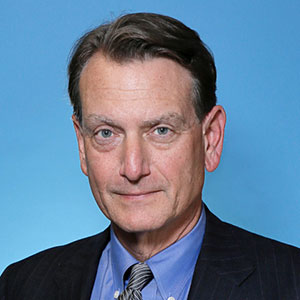
Marc Rotenberg
Marc Rotenberg is President of the Electronic Privacy Information Center (EPIC) in Washington, DC, an independent, non-profit organization, established in 1994, to focus public attention on emerging privacy and civil liberties issues. Mr. Rotenberg also teaches at Georgetown Law. He is the co-author (with Anita Allen) of the textbook Privacy Law and Society (West Academic 2016).
Q&A moderator -> panelists
Data protection and privacy have never been more in the public eye, but focus is often not on the laws that provide protection but the issues that directly engage the public. Abuses of personal data for political campaigning, massive data breaches, hidden surveillance/observation, concerns about the impact of surveillance capitalism are all driving the debate. How do data protection and privacy laws relate to these business models and how do they make a difference to the concerns of the public?
Moderator
Elizabeth Denham
UK Information Commissioner, ICO and Chair of ICDPPC

Elizabeth Denham
Elizabeth Denham CBE was appointed UK Information Commissioner in July 2016, having previously held the position of Information and Privacy Commissioner for British Columbia, Canada and Assistant Privacy Commissioner of Canada.
In 2017, she was recognised as being one of the three most influential people in data-driven business in the annual DataIQ 100 list. She was honoured to accept the appointment of Honorary Professor in University College London’s department of Information Studies. The professorship will extend until 2022. In March 2018, she was named as the most influential person in data-driven business in the updated DataIQ 100 list. In July 2018, the Information Commissioner published a report entitled “Democracy Disrupted? Personal information and political influence”, which sets out the findings and recommendations arising out of the ICO’s 14-month investigation into the use of data analytics in political campaigns. A separate progress report gives details of some of the organisations and individuals under investigation, as well as enforcement actions so far. In October 2018, Elizabeth was appointed Chair of the International Conference of Data Protection and Privacy Commissioners (ICDPPC). The ICDPPC is the leading global forum of data protection and privacy authorities, encompassing more than 120 members across all continents. In December 2018, Elizabeth was awarded a CBE in Queen’s New Year’s Honours list.
Introduction of the panel by the moderator
Panelists
Sally Hubbard
Director of Enforcement Strategy, Open Markets Institute, USA

Sally Hubbard
Sally Hubbard is Director of Enforcement Strategy at the Open Markets Institute, an organization developing solutions to America’s monopoly crisis. Previously Ms. Hubbard was Senior Editor of Tech Antitrust Enforcement at The Capitol Forum, where she specialized in antitrust, data regulation and tech giants. Ms. Hubbard served as an Assistant Attorney General in the Antitrust Bureau of the Office of the New York State Attorney General under three administrations. Ms. Hubbard has testified in the U.S. House of Representatives and before the U.S. Federal Trade Commission and regularly serves as an antitrust expert for national and global news programs. Ms. Hubbard has published her views in media outlets like CNN and The New York Times, where she has written about the convergence of competition and privacy issues.
Simon Hania
Data Protection Officer, Uber

Simon Hania
Simon Hania has been a leader at the cross roads of telecommunication and information technology, business and regulatory affairs well over 15 years. Simon is currently Data Protection Officer at Uber, overseeing compliance and advising Uber regarding its obligations under the GDPR and similar laws. Previously Simon was VP Privacy & Security at TomTom, ensuring the company to globally meet the growing expectations of customers and the increasing regulatory demands with respect to privacy & security.
Carole Cadwalladr
Investigative Journalist and Features Writer, The Guardian and The Observer
John Edwards
New Zealand Privacy Commissioner
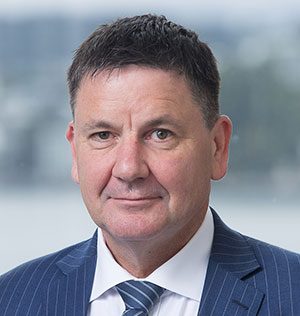
John Edwards
John Edwards was appointed to the position of Privacy Commissioner of New Zealand in February 2014, after a more than 20 year career practicing law. He has degrees in law (LLB) and public policy (MPP) from Victoria University of Wellington and has advised and represented a wide range of clients from the public and private sector. He chaired the New Zealand Law Society Privacy and Human Rights Committee, and was Contributing Editor of Brookers Human Rights Law and Practice, and has published widely on human rights and privacy matters. In addition to a practice specialty in the field of information and privacy law, he held warrants as a district inspector for mental health, and as district inspector for intellectual disability services and has provided legal services to the Kingdom of Tonga.
In October 2014, John was elected Chair of the Executive Committee of the International Conference of Data Protection and Privacy Commissioners and completed his 3 year term in October 2017.
Q&A moderator -> panelists
Brad Smith
President and Chief Legal Officer, Microsoft

Brad Smith
Brad Smith is the president of Microsoft, where he leads a team of more than 1,400 business, legal and corporate affairs professionals in 56 countries. He serves as the company’s chief legal officer and leads work on a wide range of issues involving the intersection between technology and society, including cybersecurity, privacy, ethics and artificial intelligence, human rights, immigration, philanthropy and environmental sustainability. Described by the New York Times as “a de facto ambassador for the technology industry at large,” Smith has testified numerous times before the U.S. Congress and other governments on key policy issues. Smith joined Microsoft in 1993, first spending three years in Paris leading the legal and corporate affairs team in Europe. In 2002, he was named Microsoft’s general counsel and spent the following decade leading work to resolve the company’s antitrust controversies with governments around the world and companies across the tech sector. This past decade, Smith has spearheaded the company’s work to advance privacy protection for Microsoft customers and the rights of DREAMers and other immigrants, including bringing five lawsuits against the U.S. government on these issues. Prior to joining Microsoft, Smith was an associate and then partner at the law firm of Covington and Burling, where he is still remembered as the first attorney in the long history of the firm to insist (in 1986) on having a personal computer on his desk as a condition for accepting a job offer. In addition to his work at Microsoft, Smith is active in several civic organizations and in the broader technology industry. He has served on the Netflix board of directors since 2015 and chairs the board of directors of both Kids in Need of Defense (KIND) and the Washington State Opportunity Scholarship program. Smith grew up in Appleton, Wisconsin, where Green Bay was the big city next door. He attended Princeton University, where he met his wife, Kathy (also a lawyer). He earned his J.D. from Columbia University Law School and studied international law and economics at the Graduate Institute in Geneva, Switzerland. He can be followed on Twitter @bradsmi and LinkedIn at bradsmi.
Eduardo Bertoni
Eduardo Bertoni, Director, National Authority of Personal Data Protection and Access to Public Information, Argentina
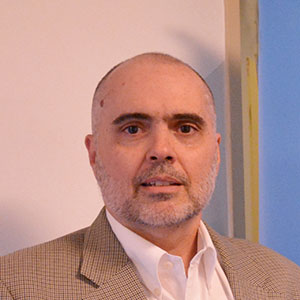
Eduardo Bertoni
Eduardo Bertoni (Phd, Buenos Aires University) is the Director of the Access to Public Information Agency, which is also the National Data Protection Authority in Argentina. He was the founder and the first director of the Center for Studies on Freedom of Expression and Access to Information (CELE) at Palermo University School of Law, Argentina. He was the Executive Director of the Due Process of Law Foundation (DPLF) until May, 2006. Previously, he was the Special Rapporteur for Freedom of Expression of the Inter-American Commission of Human Rights at the Organization of American States (2002-2005). Teaching Fellow at the Human Rights Institute at Columbia University School of Law (2001). Reagan-Fascell Democracy Fellow (2012-13) at the National Endowment for Democracy (NED). Former member of the advisory boards of the Human Rights Initiative (Open Society Foundations), the Media Legal Defence Initiative, the Freedom of Information Advocates Network (FOIAnet), among others. He is an Argentinean lawyer and holds a Masters in International Policy and Practice from the Elliot School of International Affairs, George Washington University. He published several opinion pieces on democracy and human rights in leading newspapers in the Americas and has written several publications on human rights & Internet.
Much has been said about data protection and competition in the digital sphere – issues of merger, consolidation, divestment and innovation all interact. But how are the regulators in these different spheres starting to join up their activities in practice? If competition regulators make decisions to impose restrictions or break up big tech, how will this also improve privacy and data protection?
Moderator
Wojciech Wiewiórowski
European Data Protection Supervisor
Introduction of the panel by the moderator

Wojciech Wiewiórowski
Wojciech Wiewiórowski was born on June 13th 1971. In 1995 he graduated from the Faculty of Law and Administration of the University of Gdańsk, and in 2000 he was awarded the academic degree of Doctor in constitutional law.
After graduation he was editor and then publisher in legal publishing houses. In 2002 he began to work as lecturer at Gdańsk College of Administration, and since 2003 he was assistant professor and head of Legal IT Department at the Faculty of Law and Administration of the University of Gdańsk, with which he has been associated since 1995.
Since 2006 he has been working for public administration. He was among others adviser in the field of e-government and information society for the Minister of Interior and Administration, as well as Vice-president of the Regulatory Commission of the Polish Autocephalous Orthodox Church. In 2008 he took over the post of the Director of the Informatisation Department at the Ministry of Interior and Administration. He also represented Poland in committee on Interoperability Solutions for European Public Administrations (the ISA Committee) assisting the European Commission. He was also the member of the Archives Council to the Ministry of Culture and National Heritage. He is a member of the Polish Association for European Law.
In 2010 he was elected by Polish Parliament for the post of the Inspector General for the Protection of Personal Data (Polish Data Protection Commissioner) which he served by November 2014 being reelected for the second term in 2014.
Vice Chairman of the Working Party Art. 29 since February till November 2014.
The author of numerous studies, publications and lectures in the field of personal data protection, IT law, e-government and legal informatics. His areas of scientific activity include first of all Polish and European IT law, processing and security of information, legal information retrieval systems, informatisation of public administration, electronic signature and application of semantic web and legal ontologies in legal information processing.
Panelists
Ulrich Kelber
Commissioner, BFDI, German Federal Commissioner for Data Protection and Freedom of Information
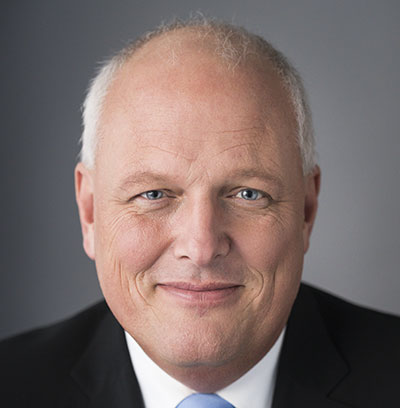
Ulrich Kelber
Born on 29 March 1968, married, 5 children
1987 to 1993 studied computer science and biology in Bonn,
1993 to 1995 worked as research associate at the GMD Research Centre for Information Technology
1996 to 2002 knowledge management consultant at an IT company (consultative function from September 2000 to September 2002).
2000 to 2018 Member of the German Bundestag,
Won the direct mandate in the city of Bonn in 2002, 2005, 2009, 2013 and 2017
2005 to 2013 Vice-Chairman of the Social Democratic Party (SPD) parliamentary group for the issues of environment, nature conservation and nuclear safety, food, agriculture and consumer protection and sustainability.
December 2013 to March 2018 Parliamentary State Secretary to the Federal Minister for Justice and Consumer Protection,
Since January 2019, Federal Commissioner for Data Protection and Freedom of Information
Orla Lynskey
Associate Professor of Law, Department of Law, London School of Economics
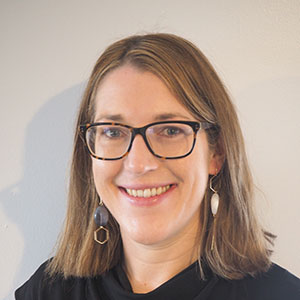
Orla Lynskey
Orla Lynskey is an Associate Professor at the London School of Economics and Political Science and a Visiting Professor at the College of Europe, Bruges. She read law at Trinity College Dublin and the College of Europe and holds a PhD in data protection from the University of Cambridge. This research was published as a book (The Foundations of EU Data Protection Law) in 2015. Her current research focuses on intersections between data protection and competition law and on the impact of platform dominance on fundamental rights. She is an Editor of International Data Privacy Law and a member of the EU Commission GDPR expert stakeholder group.
Rohit Chopra
Commissioner, FTC, USA
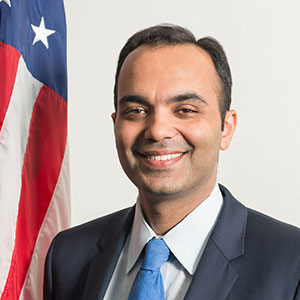
Rohit Chopra
Rohit Chopra was sworn in as a Federal Trade Commissioner on May 2, 2018.
Commissioner Chopra has actively advocated to promote a fair and fully-functioning marketplace through vigorous agency enforcement that protects families and honest companies from those that break the law. He has been outspoken about the need for greater accountability for firms that misuse and abuse data, as well as the importance of analyzing privacy, competition, and consumer protection challenges holistically.
He was previously Assistant Director of the US Consumer Financial Protection Bureau. Prior to his government service, he worked at McKinsey & Company, the global management consultancy. He holds a BA from Harvard University and an MBA from the Wharton School at the University of Pennsylvania. He was also the recipient of a U.S. Fulbright Fellowship.
Giuseppe Busia
Secretary General of the Italian Data Protection Authority
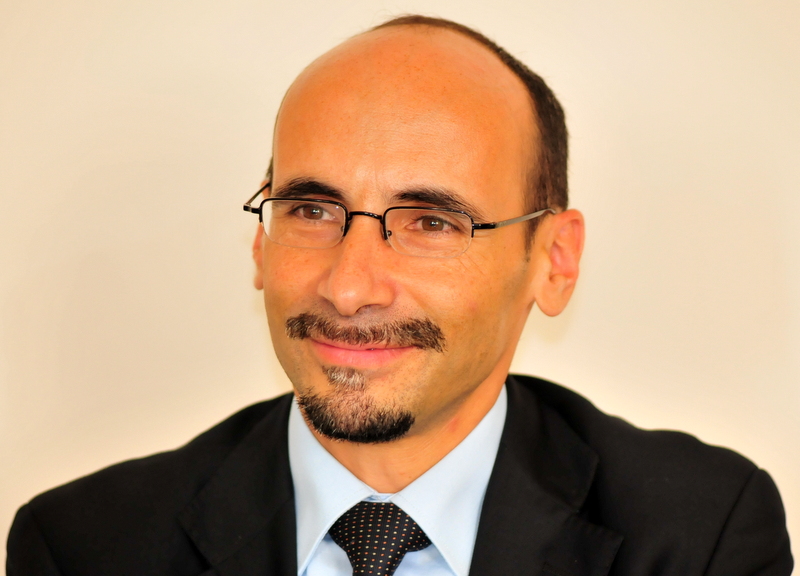
Giuseppe Busia
Giuseppe Busia, Secretary General of the Italian Data Protection Authority
Giuseppe Busia has worked at the Italian DPA from inception in 1997 and took office as Secretary General to the DPA from 2012. He was a member of the Europol Joint Supervisory Body as set up by the Europol Convention from 1998 to 2005, where he was appointed as Chair of the Appeals Committee; he was also a member of the Joint Supervisory Authority set up by the Customs Information Systems Convention and served as deputy Chair of that Authority.
From 2012 he has been Alternate Member for the Italian DPA of the Article 29 Data Protection Working Party set up under the Directive 95/46/EC and after of the European Data Protection Board under GDPR. He has been member of the ad hoc Committee on Data Protection (CAHDATA) established by the Council of Europe to modernize the Convention for the Protection of Individuals with regard to Automatic Processing of Personal Data.
He served as Secretary General to the Italian independent oversight Authority for public procurement contracts (2008-2012) and was appointed as Director of the Permanent Board for the Relations between State and Regions (2006-2008).
He is attorney-at-law and took a PhD in State theory and comparative political institutions at Rome’s “La Sapienza” University along with a PhD in Law and Economics at Foggia University. He completed his studies also in Strasbourg, New York, Tunis and Buenos Aires
He held and still holds teaching courses in several Italian universities and has authored many scientific papers
Maria Ioannidou
Commissioner, Hellenic Competition Commission and Senior Lecturer in Competition Law, Queen Mary University

Maria Ioannidou
Commissioner, Hellenic Competition Commission and Senior Lecturer in Competition Law, Queen Mary University
Maria Ioannidou is a Senior Lecturer in competition law at the School of Law, Queen Mary, University of London where she also serves as the Deputy Director of the Interdisciplinary Centre for Competition Law and Policy. Previously, she was a Lecturer in law at the University of Surrey. She has also practiced competition law in leading law firms in Athens, Greece and Brussels, Belgium. Maria studied law in Athens (BA, LLM) and Oxford (MJur, MPhil, DPhil), during which time she also worked as a researcher and conducted legal research in a wide range of EU and US competition law issues.
Her areas of interest include EU, UK and international competition law, competition law enforcement, the interaction between competition and consumer law, competition law in the energy sector, as well as the impact of big data and artificial intelligence on competition law enforcement and the consumers’ role in markets. Maria serves as the managing editor for the Journal of Antitrust Enforcement and as an editor of the World Competition Law and Economics Review. She is the author of ‘Consumer Involvement in Private Competition Law Enforcement’ (OUP 2015).
Since September 2019 she has been appointed Commissioner-Rapporteur at the Hellenic Competition Commission.
Q&A moderator -> panelists
Jamie Bartlett
Author of bestselling book ‘People vs Tech’ and BBC series presenter of ‘Secrets of Silicon Valley’

Jamie Bartlett
Jamie Bartlett is the author of the The People Vs Tech (2018) about data and democracies, Radicals (2017) about political outsiders and the best-selling The Dark Net (2014) about internet subcultures. He founded the Director of the Centre for the Analysis of Social Media at the think-tank Demos. He is also a regular commentator on national and international media outlets and in 2017 presented the two-part BBC documentary series ‘The Secrets of Silicon Valley’. His Ted Talk about the dark net has had over 4 million views.
Marguerite Ouedraogo Bonane
President of the CIL, Burkina Faso and Member of the ICDPPC Executive Committee
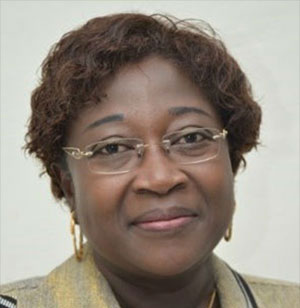
Marguerite Ouedraogo Bonane
Présidente de la Commission Informatique et Libertés (CIL) du Burkina Faso, Vice-Présidente de l’AFAPDP, Présidente du RAPDP, Membre du Comité exécutif de la Conférence internationale des Commissaires à la protection des données personnelles et à la vie privée. Juriste, Diplômée d’Etudes Supérieures en Gestion des Entreprises et en Régulation des Télécommunications de Télécom-Paris Tech, Master en cours en économie et régulation du numérique. Plus d’une vingtaine d’années d’expérience professionnelle acquise respectivement dans le domaine de la régulation des Communications Electroniques et des Postes et dans celui de la protection des données personnelles et de la vie privée. Participation à différentes rencontres internationales, régionales et nationales du secteur des communications économiques et des postes organisées par l’Union Internationale des Télécommunications (UIT), l’Organisation Internationale de la Francophonie (OIF), l’Union Economique et Monétaire Ouest Africaine (UEMOA), la Communauté Economique des Etats de l’Afrique de l’Ouest (CEDEAO). Bonne connaissance du cadre juridique et institutionnel de la protection des données personnelles et celui des communications électroniques et des postes au Burkina Faso. Distinction honorifique : Chevalier de l’Ordre National.
Concert – show – exhibition and gala dinner for all participants
Palace of Congresses
Peter Hustinx
Co-chair of the ICDPPC 2019 Programme Advisory Committee
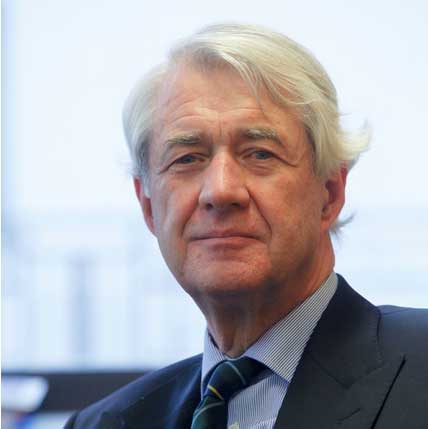
Peter Hustinx
Peter Hustinx was the first European Data Protection Supervisor from January 2004 until December 2014.
From 1991 until 2004, he was president of the Dutch Data Protection Authority, and from 1996 until 2000, he was also chairman of the EU’s Article 29 Working Party.
He has been closely involved in the development of data protection law from the start, both at national and various international levels.
He received law degrees in Nijmegen, the Netherlands, and in Ann Arbor, Michigan, USA.
In July 2015 he received an honorary doctorate from the University of Edinburgh for his work in the field of information privacy and data protection.
Early 2015 he was appointed Member of the Board of Directors of the International Association of Privacy Professionals (IAPP).
Since December 2017 he has also been a Member of the Board of Directors of the Center for Democracy & Technology (CDT) in Washington DC.
In January 2019 he was appointed Non-Executive Director of the UK Information Commissioner’s Office.
Christopher Docksey
Hon. Director-General, EDPS
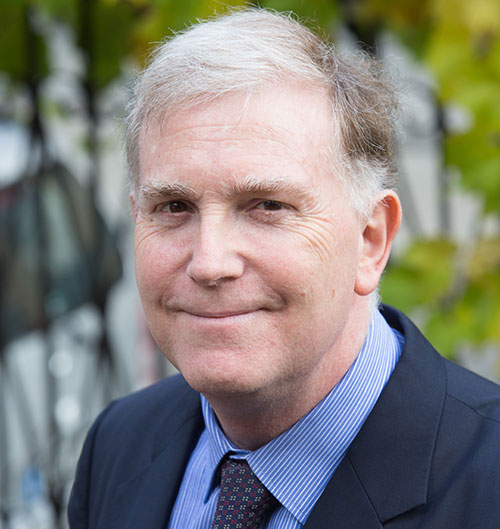
Christopher Docksey
Christopher Docksey, Hon. Director-General, EDPS, was a Legal Advisor to the European Commission until 2010 and the Director of the Office of the EDPS until 2017.
He worked in the Commission on employment law and was Acting Head of the Equal Opportunities Unit before joining the Legal Service in 1990. From 2001 he was responsible for data protection in the Commission Legal Service, advising on draft legislation and the international negotiations on Safe Harbor, PNR Swift/TFTP and the High Level Contact Group. He represented the Commission in all the data protection cases heard before the European Court of Justice over this period and subsequently represented the EDPS in the Schrems case. From 2002 to 2010 he also led a multi-disciplinary team conducting international anti-fraud litigation and negotiations on behalf of the EU and the Member States.
He was EDPS Director and a member of the Management Board from 2010 to 2017. In this capacity he was responsible for the overall management of the Office and for the coordination and implementation of policy and strategy, including the strategic review of the work of the institution.
He is a member of the Guernsey Data Protection Authority and a Visiting Fellow and Advisory Board member of the European Centre on Privacy and Cybersecurity at the University of Maastricht Faculty of Law. Together with Christopher Kuner and Lee Bygrave he is a co-Editor and contributor to the forthcoming OUP Commentary on the GDPR. He regularly teaches EU and ECHR data protection law to students, DPOs and data controllers.
Even when not explicit in the law, accountability is implicit in most privacy and data protection laws. How do we bridge the gap between the expectation of authorities and the companies that must be accountable? How can authorities’ enforcement approach ensure accountability drives high standards of data protection and what role for responsible and answerable data stewardship? How do we ensure accountability is scalable and flexible and supports high standards in SMEs, particularly tech start-ups? What is an effective enforcement approach in this context?
Moderator
Andrea Jelinek
Chair, European Data Protection Board and Director of the Austrian Data Protection Authority (DSB)
Introduction of the panel by the moderator
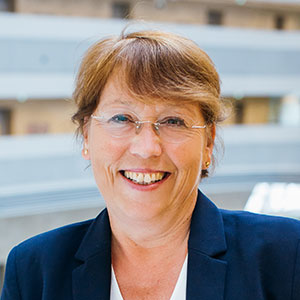
Andrea Jelinek
On January 1, 2014, Andrea Jelinek, who holds a doctorate degree in law, became head of the Austrian Data Protection Authority. While still a student, she worked as a consultant at the Austrian Science Fund (FWF), later as a trainee lawyer and from 1991 as a legal officer at the General Secretariat of the Austrian Rectors’ Conference. Two years later, she moved to the Ministry of the Interior, where she first worked as a legal officer and later as head of department in the legal and legislative department. One of her specializations – asylum and immigration law – helped determine her further career. From October 2010 to June 2011 she was head of the Vienna Foreign Police. Before that, in 2003, she was the first woman in Vienna to be appointed head of a police commissioner’s office.
Since February 2018, she has also been the Chair of the Article 29 Working Party.
Panelists
Marty Abrams
Information Accountability Foundation (IAF)

Marty Abrams
Marty Abrams is an information policy theorist. For the past 30 years he has originated and implemented policy concepts intended to reduce the friction between innovation and persons’ expectations for obscurity, control and fair processing. Abrams founded the Information Accountability Foundation in 2013 which he leads. The IAF is a non-profit research and education think tank that was the incorporation of the Global Accountability Dialogue. Based on accountability the IAF has pioneered work on ethics based AI, assessment processes to assure fair processing in advanced analytics, and means for freeing date for knowledge creation in a trustworthy manner. Formerly he founded and led the Centre for Information Policy Leadership. He has conducted projects in North and South America, Europe, Asia and Australia. Abrams was also Vice President Information Policy at Experian and Community Affairs Officer Federal Reserve bank of Cleveland. Abrams has served on the ICDPPC open session program advisory committee on eight occasions.
Caroline Louveaux
Chief Privacy Officer at Mastercard

Caroline Louveaux
Caroline Louveaux is the EVP/Chief Privacy Officer for Mastercard. She is leading the global team responsible for legal compliance, policy and regulatory engagement on privacy and data protection. Caroline led the efforts to develop and implement Binding Corporate Rules for all Mastercard’s activities, and was instrumental in preparing the company for the EU General Data Protection Regulation as well as other privacy and data-related laws globally. In that context, she assisted in creating Trūata, an Irish Trust, designed to provide a data anonymization and analytics solution in compliance with the GDPR. Caroline has extensive experience in operationalizing Privacy by Design, and advises the company on a broad range of privacy and data-related issues, including open banking, data sharing, data localization, digital identity, machine learning and artificial intelligence.
Caroline is a member of the advisory expert group supporting the review of the implementation of the OECD Privacy Guidelines. She co-chairs the Privacy Project led by the US Chamber of Commerce and serves on the board of Global Connect. Caroline also participates in the work of the International Committee of the Red Cross (ICRC) on the use of data for humanitarian action as well as the work of the UN Secretary-General’s High-Level Panel on Digital Cooperation on data-driven technologies. In addition, Caroline is a member of the Advisory Board of the Future of Privacy Forum and of the Advisory Council of the Center for Information Policy & Leadership. She is a lecturer for the “Executive DPO education” program at Paris-Dauphine University and for the “Certified Data Protection Officer (DPO)” program at Solvay Brussels School of Economics and Management. Caroline is Certified Information Privacy Professional/Europe (CIPP/E) and Certified Information Privacy Manager (CIPM – IAPP). She is admitted to the New York Bar.
Prior to joining Mastercard in 2007, Caroline worked in private practice, where she specialized in EU and Competition Law. She also worked at the CRID, a well-known research center for information, law and society in Belgium, where she performed legal research in the area of new technologies.
Daniel Therrien
Privacy Commissioner of Canada

Daniel Therrien
Daniel Therrien was appointed Privacy Commissioner of Canada in 2014. He has said that the over-arching goal of his mandate is to increase the control Canadians have over their personal information. In line with this goal, he has consulted Canadians on important issues, including current challenges to consent under Canada’s federal private sector privacy law, culminating in the OPC’s Report on Consent and Guidelines for Obtaining Meaningful Consent, providing practical and actionable guidance for organizations and individuals. He also consulted Canadians on protecting their online reputations, releasing a draft position which suggested an interpretation of Canadian law that recognizes a right to de-index outdated or inaccurate personal information. He then referred related questions to the Federal Court and identified other solutions for consideration by Parliament. He has led a number of investigations with important implications for the privacy rights of people in Canada and beyond. For example, in 2019 his investigations into the Facebook-Cambridge Analytica scandal and the Equifax global data breach both found serious lack of accountability in how these companies treat the personal information in their care. Commissioner Therrien has championed the urgent need for legislative reform of Canada’s federal privacy laws. He has called for a rights-based foundation that recognizes privacy as a necessary precondition for the exercise of other fundamental rights such as freedom and equality. He has also advised Parliament and policy makers on the need to incorporate privacy safeguards in other legislation, including those related to national security and counter-terrorism. Prior to his appointment, Commissioner Therrien spent three decades serving Canadians as senior counsel with various federal departments where human rights considerations were important.
Bertrand Du Marais
Commissioner of the CNIL, France

Bertrand Du Marais
Born on 25 April 1964 in Lyon, Bertrand du MARAIS is a graduate of ESSEC Graduate School of Management and an alumni of the National Administration School ("Ecole Nationale d'Administration", "Liberté Egalité Fraternité 1989" graduating class).
Having joined the French Council of State ("Conseil d'Etat") in 1989, he is State Counselor ("Conseiller d'Etat") since 2006. In the Advisory branch of Conseil d'Etat, he is currently a member of the Public Management Section (Section de l'administration) and deals more specifically with e-Government, Public Procurement and Public Domain.
He has joined CNIL, the French Data Protection Agency, in February 2019 and is more specifically in charge of International Affairs, e-Privacy and Artificial Intelligence.
In parallel to his career as a judge at the French Council of State or as a Senior Civil Servant within French and international administrations, he is the author of articles and books relating to public utility law, market regulation law as well as information and communication technologies, and more generally on interactions between Law and Economics. His textbook "Public Law of economic regulation"(Paris, Presses de Sciences-Po et Dalloz, 2004) has been awarded the Charles Dupin Prize by the French Academy of Social and Political Sciences (Académie des sciences morales et politiques). He chairs the Think Tank FIDES (Forum on the Interaction between Law and Economics).
Ailidh Callander
Legal Officer, Privacy International
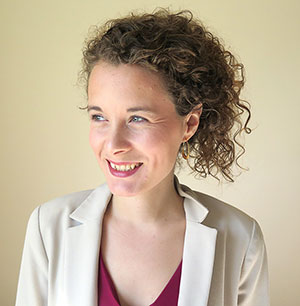
Ailidh Callander
Ailidh is a lawyer at Privacy International, an international NGO that works with partners around the world to challenge state and corporate surveillance. Ailidh is responsible for Privacy International’s legal advocacy on data protection and leads global legal research with partners. Prior to joining Privacy International, Ailidh worked as a solicitor in private practice advising a range of clients on parliamentary and public law with a focus on data protection and freedom of information. Ailidh also has a background in human rights law having spent time at the Scottish Human Rights Commission and the Inter-American Court of Human Rights in Costa Rica. Ailidh received her LLB in Law and Spanish and Diploma in Professional Legal Practice from the University of Edinburgh.
Q&A moderator -> panelists
The challenges for data protection authorities and DPOs alike have never been greater; the portfolio of skills and competence required is broad and deep to be effective enforcers. This demands further professionalization and further debate about how the community can meet this challenge. How can DPAs best network to pool their expertise? How do DPAs ensure they are ‘tech savvy’ in delivering their core functions, not just a specialism? How should an ethical focus and dimension be integrated? How can AI and new technology help DPAs or DPOs do their job?
Moderator
Trevor Hughes
President and CEO, International Association of Privacy Professionals, (IAPP)
Introduction of the panel by the moderator

Trevor Hughes
As President and CEO of the International Association of Privacy Professionals (IAPP), J. Trevor Hughes leads the world’s largest association of privacy professionals, which promotes, defines and supports the privacy profession globally. Trevor is widely recognized as a leading privacy expert, appearing at SXSW, RSA and other privacy and technology events. He has contributed to media outlets such as the New York Times, TechCrunch and WIRED and has provided testimony on issues of privacy, surveillance and privacy-sensitive technologies before the U.S. Congress, the U.S. Federal Trade Commission, British Parliament and more. A native of Canada, Trevor received his undergraduate degree from the University of Massachusetts, Amherst and his Juris Doctor from the University Of Maine School Of Law, where he is also an adjunct professor and member of the Law Foundation Board. He can be found on Twitter at @JTrevorHughes.
Panelists
Kalinda Raina
Vice President, Head of Global Privacy, Linkedin
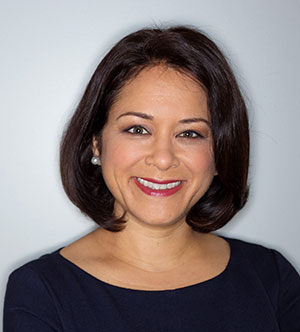
Kalinda Raina
Kalinda Raina is Linkedin's Vice President and Head of Global Privacy. She leads LinkedIn’s Privacy Team with global responsibility for overseeing compliance with data privacy laws and regulations, establishing privacy standards and policies, regulatory outreach and implementing the company’s compliance framework for privacy. She is an advocate for building a Culture of Privacy within tech organizations and using GDPR as an opportunity to further develop a company’s long term digital strategy. Prior to joining LinkedIn, Ms. Raina led the Americas privacy team at Apple, and was the Chief Privacy Officer at Nintendo. Kalinda currently serves as the Chairwoman of the IAPP Board of Directors. Ms. Raina received her J.D. from Boalt Hall, UC Berkeley in 2001 where she was one of the first graduates focused exclusively on the area of data privacy. Ms. Raina earned a BA from UC San Diego where she double majored in Communications and History and graduated summa cum laude.
Julie Brill
Corporate Vice President, Deputy General Counsel & Chief Privacy Officer, Microsoft Corporation
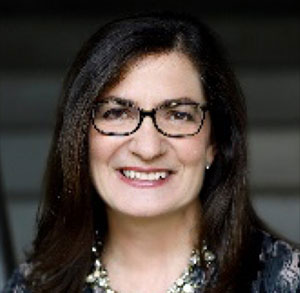
Julie Brill
Building on her distinguished public service career spanning more than three decades at the state and federal level, Julie Brill now leads Microsoft’s international work to elevate privacy as a fundamental human right. Leading the team at the forefront of many of the regulatory issues that underpin the digital transformation, Julie serves as a global authority concerning policy and legal issues involving privacy; internet governance; telecommunications; accessibility; and corporate standards. In 2018, she spearheaded Microsoft’s global adoption of the European Union’s General Data Protection Regulation (GDPR), and now leads Microsoft’s advocacy for complementary privacy mandates around the globe. In addition, Julie serves as a reliable advisor on data protection to Microsoft’s commercial customers, to help them remain on the cutting edge of privacy improvements. Nominated by President Barack Obama and confirmed unanimously by the U.S. Senate, Julie Brill served for six years as a Commissioner of the U.S. Federal Trade Commission. As Commissioner, Julie worked actively on issues of critical importance to consumers, including privacy, fair advertising practices, fighting financial fraud, and maintaining competition in all industries, including health care and technology. While at the FTC, Julie was named “the Commission’s most important voice on Internet privacy and data security issues,” a “key player in national and international regulations,” one of the “top minds in online privacy,” one of the top four U.S. government players “leading the data privacy debate,” one of the “top 50 influencers on big data,” and one of eight “Government Stars” among the Ethisphere Institute’s “2015 Attorneys Who Matter.” Julie has received numerous national awards for her work, including the New York University School of Law Alumna of the Year Award, the 2014 Privacy Leadership Award from the International Association of Privacy Professionals, and the 2019 UC Berkeley Center for Law and Technology Privacy Award. In 2013, Julie was elected to the American Law Institute. Prior to Microsoft, Julie joined the global law firm Hogan Lovells as Partner and Co-Director of its privacy and cybersecurity practice. She assisted clients with navigating the complex regulatory environment governing privacy, data breaches, cybersecurity, advertising and competition issues around the globe. Under her leadership, Hogan Lovells’ privacy and cybersecurity lawyers were named the top privacy practice in 2017 by Chambers. That same year, National Law Journal named Julie a “Cybersecurity Trailblazer” for her thought leadership on these issues. Earlier in her career, Julie served as Senior Deputy Attorney General and Chief of Consumer Protection and Antitrust for the North Carolina Department of Justice; and as Assistant Attorney General for Consumer Protection and Antitrust for the State of Vermont for more than 20 years. Julie led the National Association of Attorneys General Privacy Working Group during her tenure at the North Carolina and Vermont Attorneys General offices. Julie is active in civil society, serving as co-chair of Business at the Organization of Economic Cooperation and Development’s Committee for Digital Economic Policy; board member of the Center for Democracy and Technology; advisory board member of the AI Now Institute; and member of the National Academy of Sciences Intelligence Community Study Board. Julie graduated, magna cum laude, from Princeton University, and from New York University School of Law, where she had a Root-Tilden Scholarship for her commitment to public service.
Simon McDougall
Executive Director of Technology Policy and Innovation, ICO, UK

Simon McDougall
Simon took up the position of Executive Director in October 2018. A member of the Executive Team, he is responsible for leading the work of the Technology Policy and Innovation Directorate, ensuring delivery of ICO strategic goals through stakeholder liaison, guidance, research and international activity. His work includes helping the ICO identify, understand and address emerging technologies with privacy implications, supporting the ICO’s innovation agenda, and making the ICO itself more ‘tech savvy’. Prior to this appointment, Simon led a global privacy consulting practice at Promontory, an IBM company, leading projects across Europe, the US and Asia. He previously led a similar team for Deloitte in the UK. Simon is qualified as a Chartered Accountant, and a long time ago read English Literature at Somerville College, Oxford.
Alexandra Jaspar-Leeuw
Director - Belgian Data Protection Authority
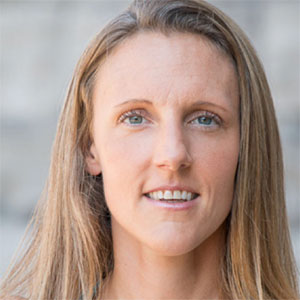
Alexandra Jaspar-Leeuw
Alexandra Jaspar is a member of the Executive Committee of the Belgian DPA. She is Director of the DPA’s Knowledge Center, whose main mission is to issue advices and recommendations to the attention of governments, organizations, public bodies and citizens. She shares the alternate Presidency of the Belgian DPA with the General Secretary and will take up the role of President in April 2022.
Alexandra has extensive experience in a broad range of privacy and data-related issues, including data subjects rights, international data transfers, PIAs, the role of DPO, anonymization, direct marketing, data breaches, data localization, as well as biometric data.
She is a lecturer for the “Certified Data Protection Officer (DPO)” program at Solvay Brussels School of Economics and Management.
Prior to joining the Belgian DPA, Alexandra led bpost group Compliance Department (dealing with anti-money laundering, fraud and data protection) and was instrumental in preparing the company for the EU General Data Protection Regulation as well as other privacy and data-related laws. In this context, she advised the Board of Directors on various matters, revised numerous processes and documents, led discussions with the former DPA, provided internal trainings, created compliance tools and developed internal policies.
Alexandra started her carrier at Linklaters LLP Brussels where she, a.o., advised on various privacy matters, performed pre-acquisition data protection due diligence exercises and drafted different types of data-related agreements.
Stephen Kai-yi Wong
Privacy Commissioner for Personal Data, Hong Kong, China

Stephen Kai-yi Wong
Mr Stephen Wong joined the Attorney General’s Chambers of the Hong Kong Government as a Crown Counsel in 1986. In 1991, he was seconded to the UN Human Rights Committee based in Geneva. In 1992, he became the Assistant Director of Public Prosecutions. From 1996 to 2014, he assumed the offices of Deputy Solicitor-General; Founding Director of Berlin Economic and Trade Office; and Secretary-General of the Hong Kong Law Reform Commission, responsible for human rights (including reporting to UN human rights treaty monitoring bodies); cross-boundary legal affairs; Constitutional law issues; legal policies; economic and trade affairs (Central and Eastern Europe) and law reform. His fields of legal practice also include commercial law, arbitration law, intellectual property and criminal law. He is also active in the community work, having been appointed as an adjunct professor of the School of Law, City University of Hong Kong; advocacy examiner of the Faculty of Law, University of Hong Kong; a director of the City Contemporary Dance Company and a scout leader. He graduated from the University of Hong Kong, also holding an LLM from the London School of Economics. He also pursued management courses at Harvard and Wharton, USA. Mr Wong was appointed as the Privacy Commissioner for Personal Data of Hong Kong in August 2015, having been in private practice as a barrister-at-law, specialising in public law. On top of overseeing a fair enforcement of data protection law, he has since been allocating additional resources in education and publicity, and engaging the related industry with a view to strengthening the culture of respecting others’ personal data privacy by complementing legal compliance with data ethics, as well as maintaining a proper balance between free flow of information and data protection without unduly compromising ICT and economic development.
Q&A moderator -> panelists
Raymond Liboro
ICDPPC Executive Committee member and Privacy Commissioner/Chairman of NPC, The Philippines
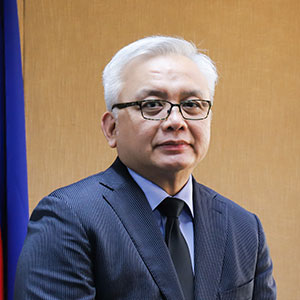
Raymond Liboro
Raymund Enriquez Liboro is the Privacy Commissioner and Chairman of the National Privacy Commission (NPC), Philippines.
Having been appointed as the country’s first Privacy Commissioner in March 2016, he fast tracked data protection policy development in the country with the issuance of the Data Privacy Act’s Implementing Rules as well as significant policy circulars all within the first year of NPC’s establishment-effectively working for the country’s data privacy and protection rules to be at par with global data protection regulations.
He spearheaded the country’s participation in two of the biggest data privacy organizations in the world: The International Conference of Data Protection and Privacy Commissioners or ICDPPC and the Asia Pacific Privacy Authorities Forum-earning the country full-membership status in these prestigious organizations in the Philippines’ very first attempt for membership. In October 2018, he has been elected as one of the five voting members of the Executive Committee of the ICDPPC.
He is currently the Chairman of the Department of Trade and Industry’s Bureau of Philippine Standards’ Technical Committee (TC) 60 on Information Technology, actively participating in international meetings of ISO/IEC JTC 1 subcommittee 27 – IT Security Techniques, Working Group 5.Prior to the NPC, he was the Assistant Secretary of the Department of Science and Technology, where he initiated the creation of ICT-based risk-management tools for climate change adaption and disaster risk reduction under this initiative is the risk management tool called the Nationwide Operational Assessment of Hazards or Project NOAH, which has been cited as one of the most advanced e-governance tool in disaster prevention by the United Nations Program Office on Governance (UNPOG).
He is an alumnus of the University of the Philippnes -School of Economics.On top of ensuring compliance with the Data Privacy Act, his personal advocacy is to help build a culture of privacy in the country and establish the Filipinos as responsible digital citizens of the world.
Dr. Francisco Javier Acuña Llamas
Commissioner President of INAI, Mexico's Host Authority for ICDPPC 2020
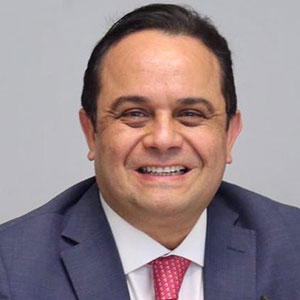
Dr. Francisco Javier Acuña Llamas
He has a Degree in Law from the Regiomontana University and a Doctorate in Political Science and Sociology from the Complutense University in Madrid. He was a Professor at the graduate program on Information Law at the National Autonomous University of Mexico (UNAM). He has authored several books and publications on matters related to Human Rights and Discrimination; Electoral Transparency; Right to Information; Transparency and Corruption; Personal Data and Access to Information, among others. He is currently a columnist for the Mexican newspapers “Excélsior” and “El Financiero”. He was the Coordinator for Information, Documentation and Transparency at the Electoral Tribunal at the Judicial Power of the Federation from 2011 to 2014. On May 14th, 2014, he became a Commissioner of the then Federal Institute for Access to Information and Data Protection (IFAI). On May 12th, 2017, the National Institute for Transparency, Access to Information and Personal Data Protection´s (INAI) Plenary elected Francisco Javier Acuña Llamas as President Commissioner for the 2017-2020 period.
